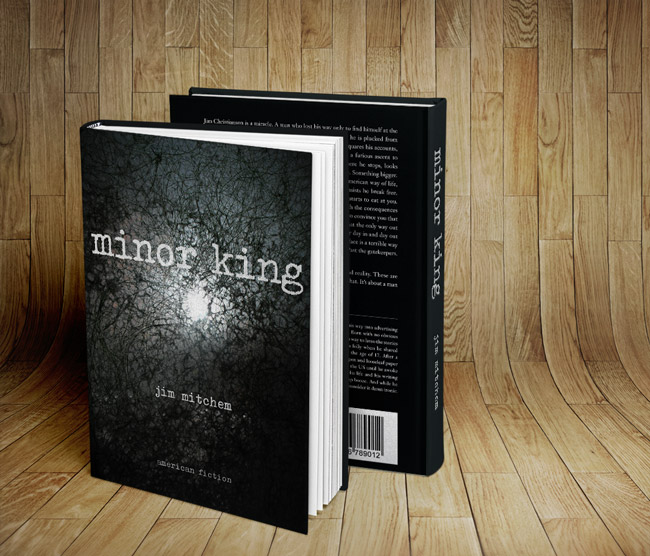“Everything changes” has to be the most overused and underappreciated cliche known to man. We're desensitized to it. But from the day we’re born until the day we die, the human body endures some form of change. Those in denial of this fact suffer physically, spiritually, emotionally, etc. They try to keep things exactly the same. Eventually, they wither. Those who accept change, do what’s necessary to play right along with it. They live well. Exercise. Eat right. Grow. The trick is to recognize proportion. For example, you wouldn’t ask a 5 year old to swim two miles a day, or a 65 year old to bench press 250 pounds. Sure, there are exceptions, but they're rare. Change is a universal truth that influences and affects, well, everything. And it’s not limited to living forms, but inanimate forms as well. Ask any mountain or tectonic plate.
And change applies to business too. Only, in business we’re programmed to be reactive. What I mean by this is that rarely do you see businesses using proactive approaches in reaching their audience. We’ve always bought print. And radio. And television. And direct mail. There are positive case studies for justifying these methods, by God! So we utilize best practices based on historical methodology and try to apply innovation and pass that off as creativity. And there’s nothing wrong with that. But it's not exactly proactive. Hell, it’s risky enough to be in business in the first place, let alone risking budgets on crazy new media fads. So businesses are usually slow in accepting change and playing along with it. That is, until someone comes up with a proven, positive and parallel case study.
Unless you live under a rock, you know that there's an epic tragedy occurring in the Gulf of Mexico. If something good comes out of this situation it’s that every one of us needs to reevaluate our dependency on oil, and energy in general. This disaster isn’t just BP’s fault, it’s everyone’s. Change must occur. But how? It won’t happen overnight. It can’t. There’s no switch to go from oil to wind or solar or whatever. A transition must occur. And it will. But this doesn’t mean that oil will go away in our lifetimes. It might not go away…ever. No, the change will be proportionate to supply and demand.
When Burma-Shave started their series of highway sign messages in the 1920s, no one else was doing it. It was risky. Nearly 100 years later, billboards are still relevant. Only less so. Billboards may never go away. They might sit on clouds like in the Jetsons, but they’d still have relevance.
Today I tweeted, “Radio is coal. TV is oil. Digital is wind. Change happens.”
A few people immediately got all up in my grill about how Digital *is* TV/Radio, etc. A couple people asked where other things fit in – like print. One person contended that coal is the future. Another that radio is not dead. There was also a shout-out to natural gas. Regardless of the semantics, or whether you’re a proponent of one form of energy, or media, or another, change happens. It just does.
Enter social media (SocMe). Aside from being a horrible misnomer (we can’t think of anything better right now – thus my choice of ‘Digital’ in the tweet above), there are people here putting daggers into the heart of traditional media too soon. Way too soon. Yes, in my opinion SocMe is the most revolutionary communications advancement of my lifetime. Maybe ever. And I’m not going to spend time here waxing on the efficient connectivity of the digital age. If you’re here, you already know that this medium is growing. Fast. And by growing, I mean that people are coming here and engaging.
Flash back to Berma-Shave. They went where people were. It was risky, sure, but it paid off handsomely for them. This is not to say every brand that invests in this space will hit it big time, nor will they be revolutionary. Rather, they’ll be going to where their audience is. It’s a natural transition.
But I do have ideas. And one of them is for businesses to use their own internal resources to engage their audience. But how do you find the money to do this? Easy, rethink your budgets proportionately. If you believe that change is occurring right now under your nose, then you don’t have to be told that your print buy or your television buy or whatever, is nearly as valuable as it once was. Proportionately carve from these budgets to allocate money to your SocMe development and then train your own people to get out there and represent you the way they do when they pick up the telephone. Imagine whole companies shifting their communications strategies to maximize internal human resources to perform the same kinds of functions that they used to rely on traditional forms of media for? No, you're not giving up on those traditional forms of media, just using them smarter. And perhaps, less so. It's all about proportion.
Traditional media isn’t dead for the same reason coal may be around as a legitimate form of energy forever. Also, traditional media isn’t irrelevant. It’s just growing increasingly less relevant – proportionate to digital, SocMe growth.
Change. It isn’t death. It’s the exact opposite, really.
***
[Note to everyone who might say, ‘But social is also for public relations, customer service, recruiting, etc.’ – you’re right. It is. That’s just another reason why budgets should be allocated proportionately based on specific strategies. Every company, like every human, is different.]
Jim Mitchem is a father, husband, writer, and entrepreneur. You can follow him on Twitter @smashadv
